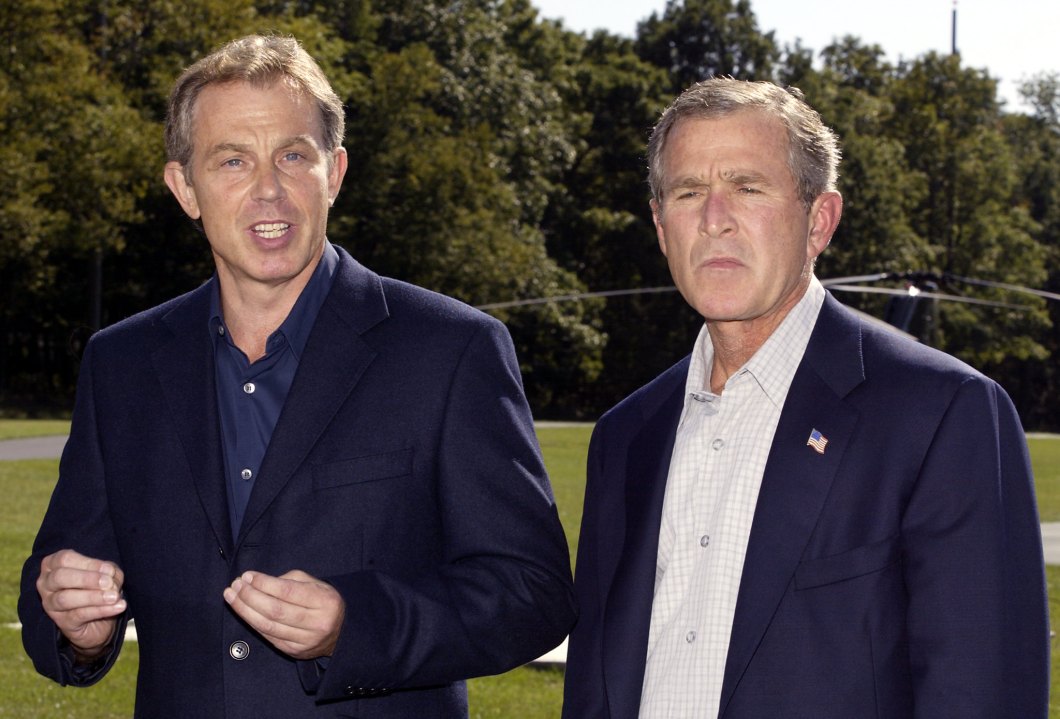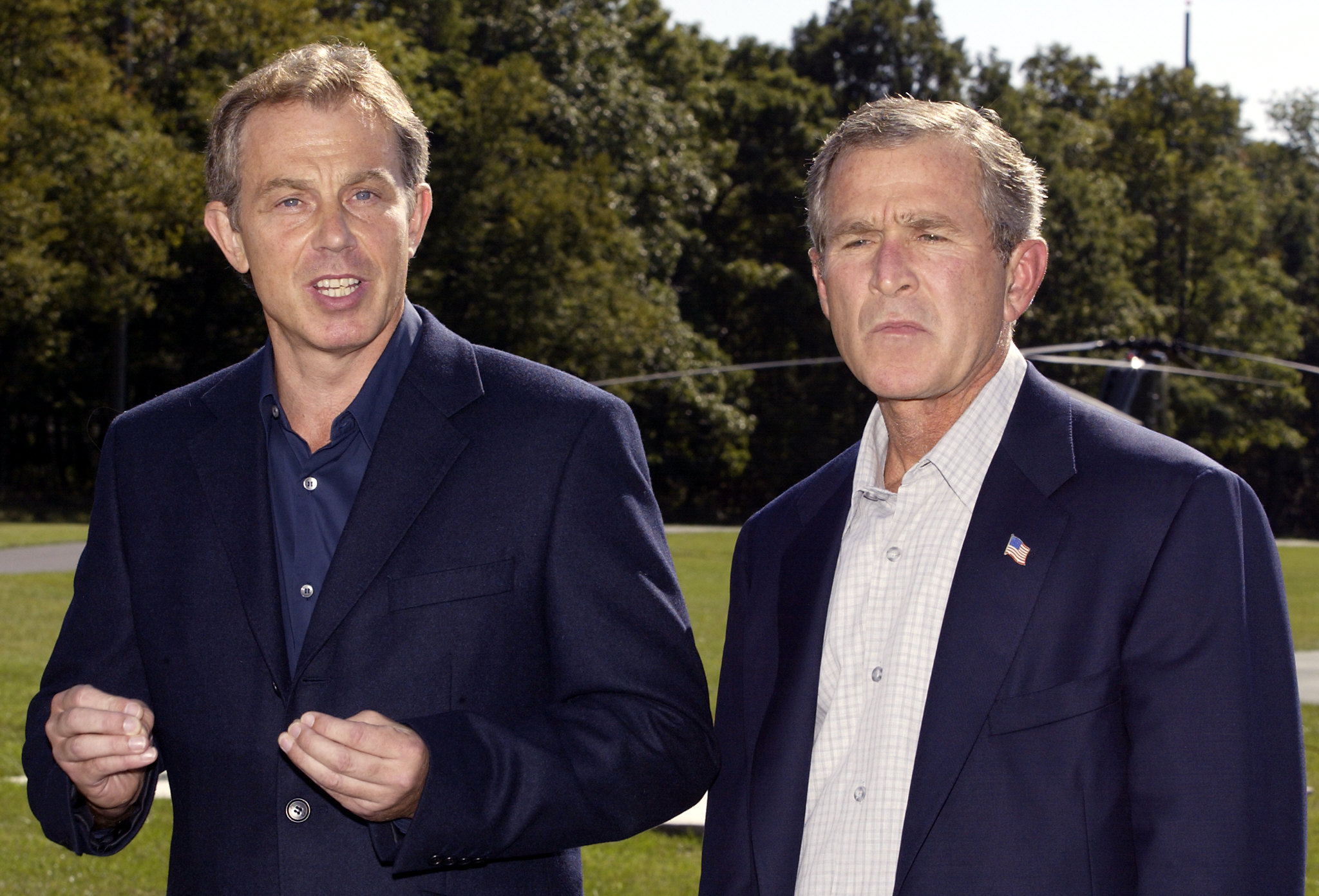I never really saw the point of the Chilcot Inquiry and nothing that has happened in the years since it first sat has persuaded me I was wrong to think it liable to prove a waste of time, effort and money.
Dear old Peter Oborne pops up in today’s Telegraph to confirm the good sense of these suspicions. Chilcot, you see, is most unlikely to satisfy Tony Blair’s critics, far less provide the “smoking gun” proving that the Iraq War was a stitched-up, born-again conspiracy promoted by George W Bush and eagerly, even slavishly, supported by Anthony Charles Lynton Blair.
This is not an argument about truth. If Chilcot fails to deliver a report confirming the existence of this kind of plot then this will be taken as proof that plot really existed. Nothing will persuade the Blair-is-a-war-criminal crowd otherwise. If Chilcot produces a report damning Blair then that’s a Good Thing and an obvious statement of obvious truths; should he fail to do so then that’s evidence the conspiracy remains so vast and so heinous that the truth must still be suppressed, no matter the cost.
Which is why, as I say, the Chilcot Inquiry cannot satisfy the Blair-haters any more than the three previous inquiries into the war did so. Each of these, naturally, failed to reach the proper conclusions and, therefore, were useless.
The essence of Peter’s complaint (building upon Lord Owen’s observations at the weekend) is this:
The central allegation against Mr Blair is that he gave a private assurance in early 2002 to President Bush that Britain would join the United States in an invasion of Iraq. Thereafter, it is said, all was decided. Even though Mr Blair later highlighted Saddam Hussein’s alleged weapons of mass destruction, and misrepresented what he was being told by the intelligence services to the House of Commons, it was of little significance to him, because the die had been cast anyhow.
Hence the central importance of access to those conversations. They are likely to cast much-needed light on whether or not the allegations that the prime minister struck a private deal with the president are true. Yet, amazingly, the Chilcot Inquiry’s website states that it has “not yet” even “begun its dialogue” with government over the treatment of these Blair/Bush conversations.
Really? Is that it? Blair promised Bush that Britain would support the United States and thereafter cheerfully misled parliament (and the rest of the world) because the truth – or what Blair believed to be the truth – didn’t matter nearly as much as getting into Iraq. Everything – all that diplomacy, all those sessions at the United Nations – was a sham, a smokescreen laid to confuse the war’s opponents. Bush and Blair never believed any of it, of course, but they were cunning enough to know they needed to do something to gin up enthusiasm for the war. Or something like that.
It is a preposterous notion that, incidentally, gives Bush and Blair too much credit. A list of the people and organisations that needed to be – and were – successfully gulled includes, but is scarcely limited to, Colin Powell, Hillary and Bill Clinton, multiple foreign intelligence services, the United States Congress, the House of Commons, the United Nations Security Council and so on and so on.
Even if Blair did give Bush this kind of assurance, so what? If Blair’s critics are correct to suppose Blair “committed” Britain to the war in early 2002, the Prime Minister is chiefly “guilty” of making a promise he could not guarantee keeping. In that sense the promise, if it existed at all, was in large part a meaningless commitment.
Moreover, the idea that Blair (and Bush) concocted a case for war that they knew was false or, at best, based upon a tendentious interpretation of the available evidence, requires so many other people to have been in on it that, again, it stretches credulity beyond breaking point.
The war may have proved a grievous blunder and those who opposed it look more prescient (in some ways) than those who backed it. But later mistakes – including, of course, the failure to find WMD – do not actually mean the argument for “dealing” with Saddam Hussein was based upon arguments that were known to be untrue at the time they were being made.
And so, what is the point of “revealing” these conversations? What, indeed, is the point of the Chilcot Inquiry? Who can it satisfy or whose mind can it possibly change? Some people will not be persuaded because they cannot be persuaded.
If there’s an irony here it is that there were people a decade ago who took any suggestion Saddam might not have active WMD programmes as evidence of Saddam’s utter deviousness. It was proof he could not be trusted and therefore, perversely, evidence he was up to no good. Ten years later we see the same thing: the absence of evidence against Blair is proof of the former Prime Minister’s cunning. He must have been up to something, otherwise why the need for secrecy? And so down the rabbit hole we merrily go.








Comments